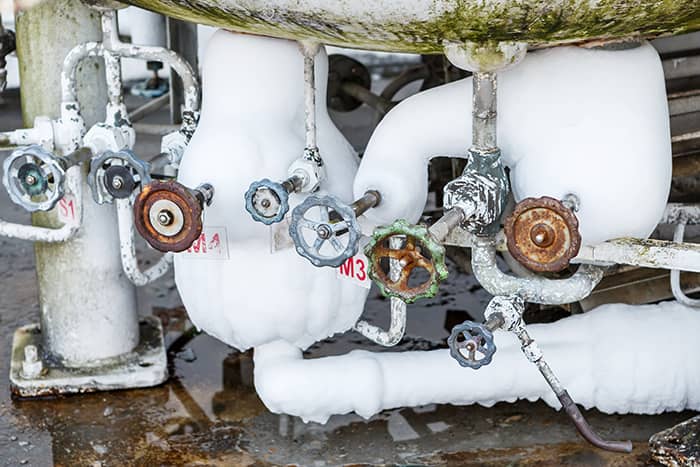With the winter around the corner, frozen pipes are becoming a more common issue. Residents don’t always have any warning that winter weather is going to hit, and even here in California, you face the risk of pipes freezing during a cold snap.
Here is a do-it-yourself tip on how to prevent pipes from freezing over, use these 4 tips to lower the risk of frozen pipes:
Run Water
Water doesn’t freeze as easily if it’s running. During cold weather keep one of the water faucets in your home dripping, such as the bathtub faucet.
Keep the Heat Going
During the winter months, when it seems that your heater is running constantly, it can be tempting to save money by lowering the thermostat. Even at night and when you’re not home, keep a steady temperature of at least 50 degrees. This ensures that your house stays warm enough to prevent pipes from freezing.
Insulate Pipes
Insulating pipes in unheated areas of your home can keep them from freezing. Focus on the attic, basement, and garage. You can DIY with supplies from the hardware store or hire the services of a plumber.
Turn Off Water
If you plan on being away from home for a few days, it’s a good idea to turn off the water completely. You’ll know that if a pipe does burst, you won’t be coming home to a flooded basement and thousands of dollars in damage. After shutting off the main valve, turn on all the taps and flush toilets to drain the water completely. Need help with frozen pipes? Call a local plumbing pro in California.
Fix Leaking Pipes
If they should happen to freeze, leaking pipes are more at risk of bursting. Inspect your pipes before cold weather arrives and check for any leaks. Although you can temporarily patch a leak by wrapping it, only a plumbing contractor will be able to apply a permanent solution.
Burst Pipes
When water freezes it expands, creating pressure within a pipe as water turns to ice. As the pressure continues to increase it puts a huge strain on the pipe and can cause it to burst. Water will continue to flow out of the rupture until the water supply is shut off. When a pipe bursts, you’ll have to deal not only with cleaning up the mess but also paying for the damage to your home.
If a frozen pipe bursts:
Immediately shut off the water supply. Label the main shut-off valve and make sure everyone in your household knows where the valve is located.
Call a plumber for immediate repair.
Avoid the flooded area and be cautious of your electrical system. If you suspect a risk, turn off the electricity at your main fuse box.
After the water has been cleared and the plumbing repaired, contact a foundation contractor for an assessment to be sure there’s no deeper damage to your home.







